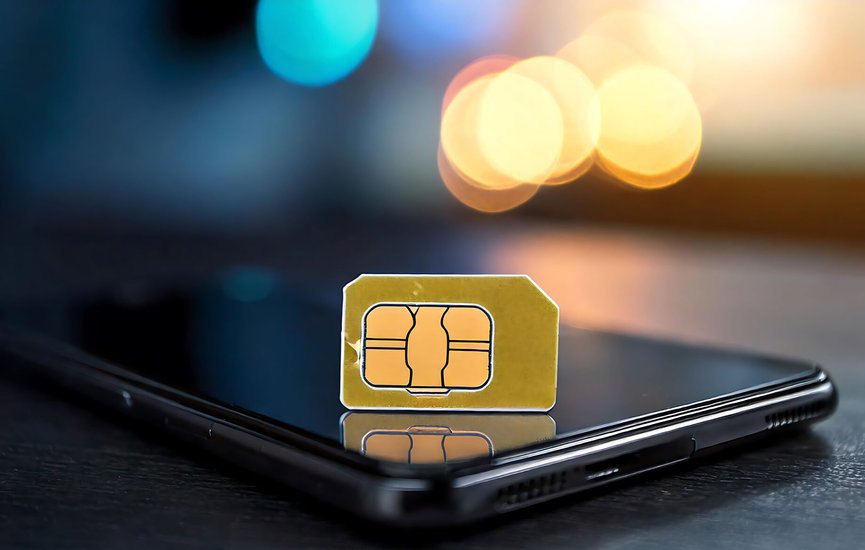The shift from physical SIM cards to eSIMs (embedded SIMs) has sparked both excitement and concerns. While many travelers, business professionals, and tech enthusiasts appreciate the convenience of eSIM technology, security remains a major point of discussion. Are eSIMs truly secure, or do they introduce new vulnerabilities for hackers? Let’s address the myths, review the facts, and explore just how secure eSIM technology really is.
Understanding eSIM Security: The Basics
One of the most common misconceptions about eSIMs is that they are less secure than traditional SIM cards. In fact, the opposite is true. eSIM technology adheres to strict security protocols, often surpassing the security measures of physical SIM cards. Since eSIMs are embedded directly into devices, they cannot be physically removed or swapped out, which significantly reduces the risk of SIM card cloning or theft.
With eSIM technology, network profiles are downloaded digitally and protected by encryption, making unauthorized access extremely difficult. Providers such as eSIM Plus prioritize security by implementing robust authentication measures and remote management features to prevent unauthorized profile installations.
Debunking Common eSIM Myths
Myth #1: eSIMs Are More Vulnerable to Hacking
Reality: eSIMs follow the same security protocols as traditional SIM cards, with additional layers of protection. Physical SIM cards can be removed, stolen, or swapped, exposing users to risks like SIM swap fraud. On the other hand, eSIMs require cryptographic authentication and remote provisioning, which significantly lowers the chances of such attacks.
Myth #2: eSIMs Can Be Remotely Wiped Without Permission
Reality: While eSIMs can be remotely managed, this functionality is controlled by network providers and device manufacturers. Unauthorized remote wiping is nearly impossible because it requires authentication through encrypted channels. Users always maintain control over their eSIM profiles via their devices.
Myth #3: eSIMs Lack Privacy Protections
Reality: eSIM technology actually enhances privacy. Since there is no physical card to steal, eavesdroppers have fewer points of attack. Additionally, eSIMs adhere to global security standards, ensuring that user data remains encrypted and protected from third-party access.
How eSIMs Enhance Security
- No Physical Theft or Cloning
Traditional SIM cards can be physically removed and cloned by malicious actors. Since eSIMs are embedded within the device, they can't be easily extracted, making cloning much more challenging. - Encrypted and Secure Profile Management
Each eSIM profile is stored in a secure environment on the device and encrypted, ensuring that only authorized users can access or modify the profile. The remote provisioning process is safeguarded by strict authentication protocols. - Multi-Factor Authentication (MFA) for Profile Activation
Many eSIM providers require multi-factor authentication (MFA) before activating a profile, adding another layer of security. This prevents unauthorized installations and further reduces the risk of fraud. - Resistance to SIM Swap Scams
SIM swap fraud occurs when cybercriminals transfer a victim’s phone number to another SIM card to intercept calls and messages. Because eSIMs require secure digital provisioning, this type of fraud is much harder to carry out.
Top eSIM Providers with Strong Security Measures
When choosing an eSIM provider, security should be a top priority. Here are some leading eSIM providers known for their strong security features:
- eSIM Plus
A trusted provider offering flexible and secure eSIM solutions for travelers and business users. eSIM Plus prioritizes encryption, remote management security, and compliance with global standards. Their user-friendly app enables easy plan switching and activation, making it a top choice for reliable international coverage. The company continually updates its security protocols to protect users from evolving cyber threats. - Airalo
As one of the pioneers in the eSIM market, Airalo offers a global eSIM marketplace with strong authentication and user verification measures. Their platform provides affordable data plans worldwide, ensuring users stay connected without unexpected fees. Airalo's encrypted profile downloads and real-time fraud detection enhance security, while their customer support team helps resolve any security-related concerns. - Holafly
Specializing in travel eSIMs, Holafly ensures privacy through encrypted profile management and stringent authentication protocols. With a focus on unlimited data plans, Holafly caters to travelers who need constant connectivity. The platform regularly audits its security systems to address vulnerabilities, and partnerships with major carriers ensure a stable, secure connection. - Ubigi
Ubigi is a reputable provider offering secure eSIM services with multi-factor authentication and encrypted provisioning. Ubigi supports individual consumers and businesses, providing high security standards across all platforms. Their robust firewall protections guard user data from cyber threats, and their integration with IoT devices makes them a preferred choice for enterprises seeking secure connectivity. - Truphone
A key player in the eSIM market, Truphone offers enterprise-level solutions with end-to-end encryption and tamper-proof technology. Their eSIMs support global roaming without compromising security, making them ideal for international travelers and businesses. Continuous security monitoring helps Truphone detect and mitigate potential threats, protecting sensitive corporate communications and data.
So, Are eSIMs Secure?
The short answer: Yes, eSIMs are highly secure and, in many ways, even more resistant to fraud than traditional SIM cards. With built-in encryption, secure remote management, and resistance to physical tampering, eSIMs offer a robust alternative to physical SIM cards. While no technology is completely immune to cyber threats, eSIMs significantly reduce many of the risks associated with traditional SIM technology.
By choosing a reputable provider like eSIM Plus, Airalo, or Holafly, users can enjoy the benefits of eSIM technology without compromising security. Whether you're a frequent traveler, a business professional, or simply looking for a more flexible mobile experience, eSIMs offer a secure and efficient way to stay connected.
